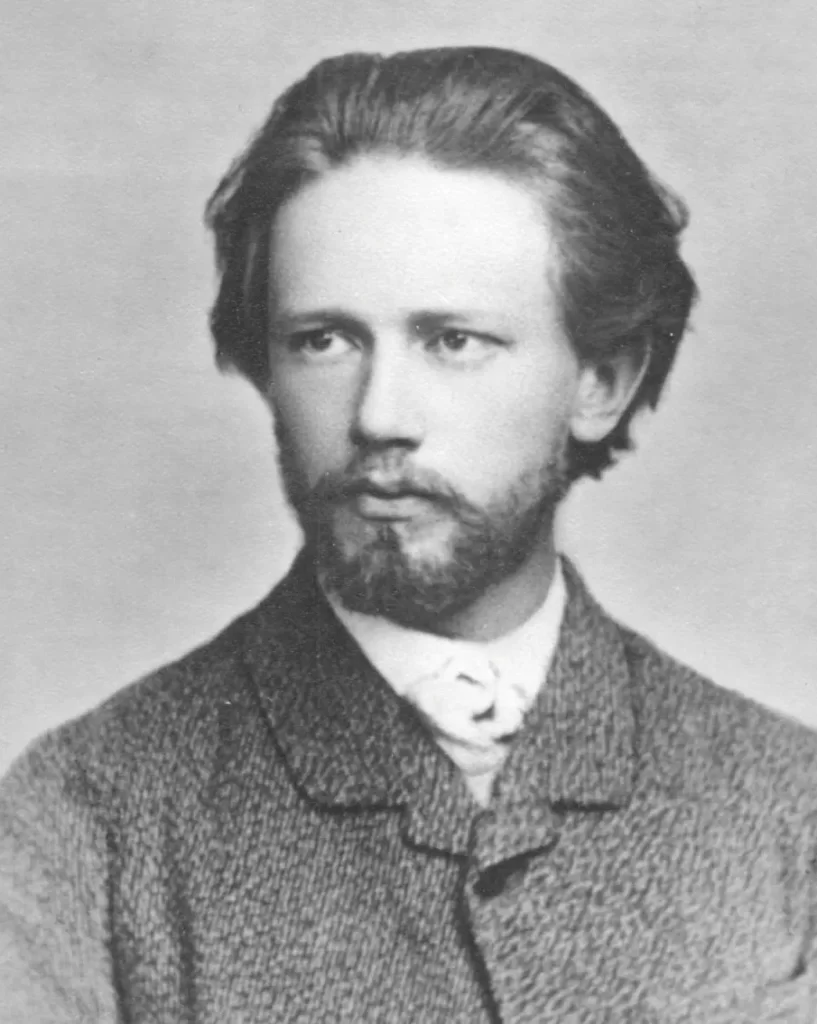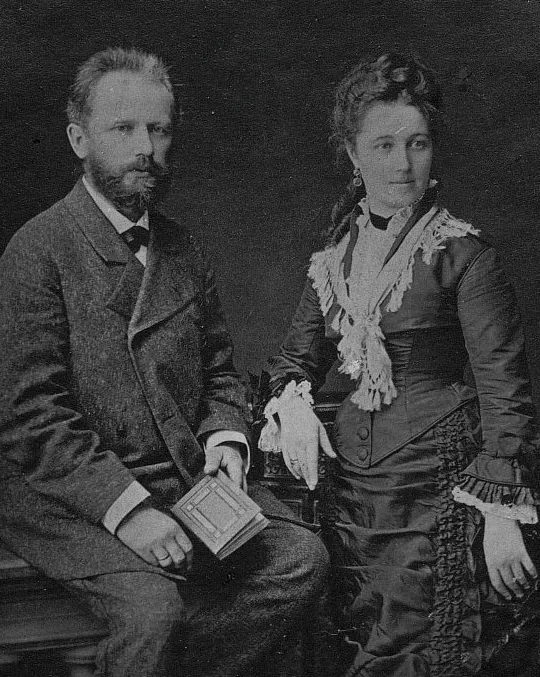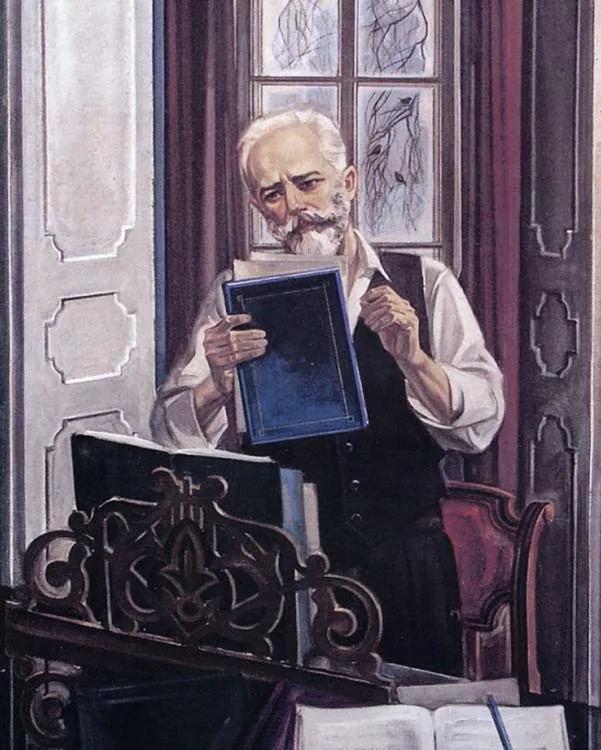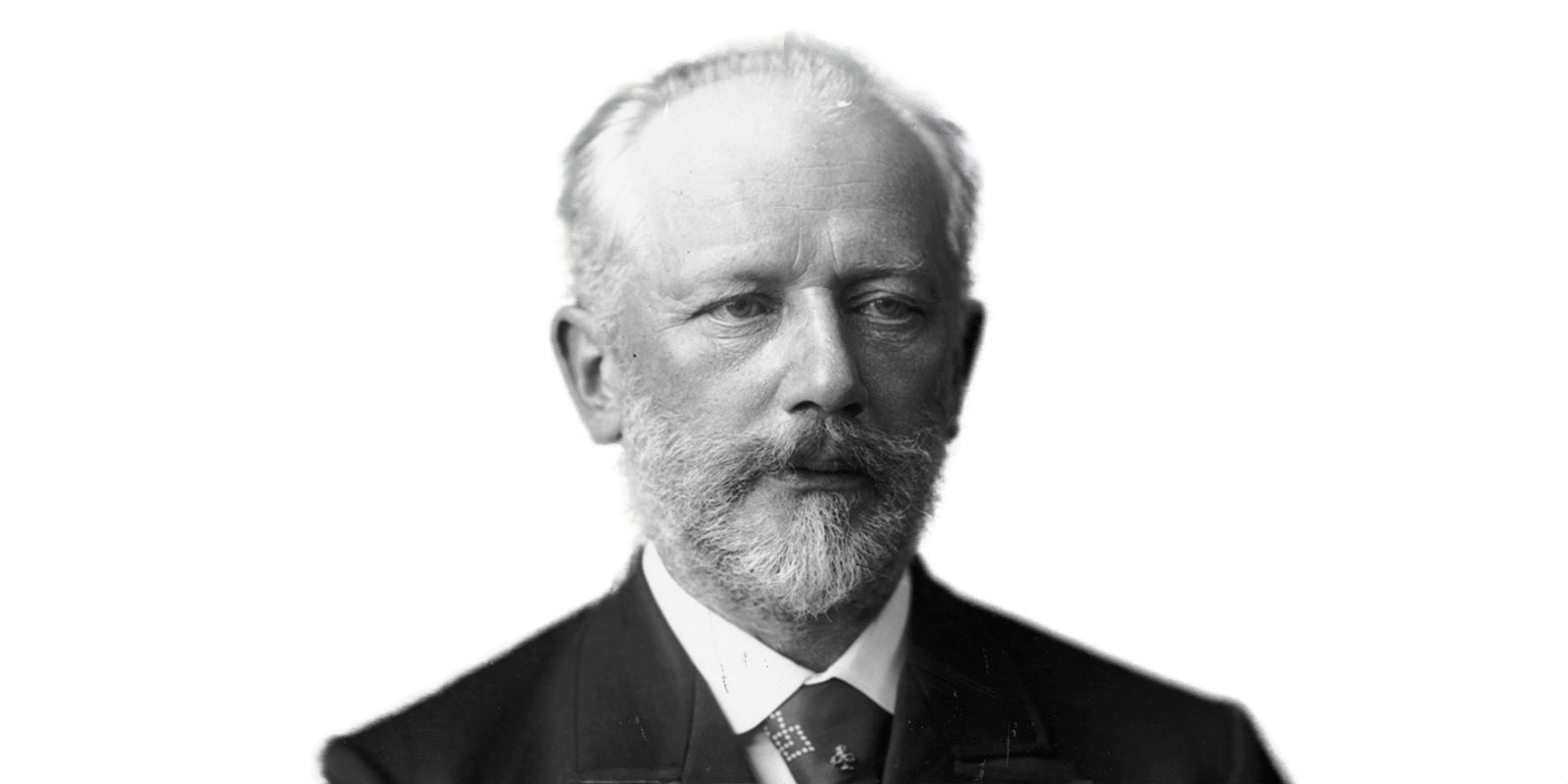Biography
Date and place of birth: May 7, 1840, Votkinsk
Date and place of death: November 6, 1893, St. Petersburg
Libretto: Eugene Onegin, Mazepa, The Maid of Orleans, The Oprichnik
Pyotr Ilyich Tchaikovsky was a Russian composer, music critic, conductor, and teacher. He brought the cultural life of the Russian Empire to a new level. The composer’s contribution to world classical music is invaluable, and his works are among the most performed.
Childhood and adolescence
Tchaikovsky was born on May 7, 1840, in what is now Udmurtia. The composer’s mother Anna Assier was an enlightened woman for her time. She graduated from the School for Female Orphans, where she received knowledge in rhetoric, literature, arithmetic, geography. She knew foreign languages.
Her father came from a well-known in Ukraine Cossack family. He worked as an engineer, then received an offer to head the steel plant in Kamsko-Votka. After moving to a new place of residence, Ilya Petrovich became the owner of a large house, an army of 100 Cossacks and servants.



Representatives of the nobility, engineers from Foggy Albion, and the capital’s young people often gathered in the house of the Tchaikovsky’s. Besides Peter, the family had three more children – sons Nikolai and Hippolyte and daughter Alexandra.
The composer’s love of music was instilled by his mother. Since his governess did not know how to read music, the future composer hired a teacher from the serfs, who taught him to play the piano. Tchaikovsky played music all the time.
If his parents forbade him to play, he kept practicing his fingers on the improvised piano. Once the boy got so carried away that he broke a window pane, severely injuring his hand. In 1848, Ilya Petrovich retired and the whole family moved to the capital. A month later, the Tchaikovsky family moved to St. Petersburg.
Education and Service
In the city on the Neva, the composer was introduced to the symphony orchestra, opera and ballet. Together with his mother, the boy loved going to the theater. In 1849 his parents sent the boy to the Institute of the Corps of Mining Engineers and they left for the Urals with their youngest children. Ilya Tchaikovsky took the place of the head of the factory of the Yakovlev heirs.
A year later, his mother and father sent Peter to the Law School. The parents hoped that in the future their son would become a lawyer. At the Imperial School, Tchaikovsky contracted the measles. Subsequently, the ailment he suffered repeatedly reminded Peter of himself by fits. He studied hard, but never forgot his music.
In 1854 Tchaikovsky’s mother died of cholera. Peter took the loss of his beloved one very hard. From 1855 to 1858 he continued studying the piano. Later, his father became unable to pay his teacher, and the lessons had to be stopped.



In 1859 Peter graduated from the Imperial College. The young man passed practically all the subjects with “A” marks. Tchaikovsky entered the service of the Ministry of Justice. The future composer did not interrupt relations with his former classmates. Since most of them were from well-to-do families, there were music evenings in their homes, which Pyotr did not miss.
In 1861, his father’s friend V.V. Pisarev invited the young man on a trip abroad. He needed Tchaikovsky as an interpreter. After all, by that time Pyotr knew French and Italian. Upon his return, the future composer, at his father’s instigation, became a student at the conservatory. In his class he was the best in the composition class.
The Beginning of the Creative Path
In 1863 a new page was turned in Tchaikovsky’s biography, and some radical changes took place. The composer resigned from the Ministry. He was drawn to music, he wanted to do only art, but he had to make a living. His father could not improve the financial situation. The family was economizing on everything, Peter gave lessons.
He received 50 rubles a month, but this money was not enough. His clothes were worn out, but he did not pay attention to it. The cantata “To Joy” was Tchaikovsky’s graduation work. The musical work did not make the right impression on the critics. They kept repeating that Pyotr Ilyich would not make a good composer.
The composer was not worried by the negative reviews. He carried on creating more, the more so as other, earlier works were publicly performed by a symphony orchestra under the baton of Johann Strauss.
Career blossom
In 1866 Tchaikovsky received an offer to become a teacher at the Moscow Conservatory. Pyotr Ilyich proved himself to be not only a professional in the musical field, his organizational abilities exploded. He did everything in his power to provide his students with books, creating method books and translating foreign editions.
For 12 years the composer taught and was involved in his own work. Eventually it became difficult for him to combine both, and he turned down the job at the conservatory. Tchaikovsky recommended his best pupil – Sergei Taneyev – to take his place.
While living in Moscow, the composer was introduced to members of the Mighty Handful. Its leader, Mily Balakirev, advised Pyotr to begin writing instrumental works without words. His first overture, based on William Shakespeare’s tragedy, received positive critical acclaim.
In 1871 Vladimir Shilovsky, a student of the composer, invited him on a trip abroad. During his stay in Italy and Germany Pyotr Ilyich wrote his famous works – “Nocturne” and “Humoresque”.
Upon his return from the trip, Tchaikovsky ran into financial problems. He was forced to write articles for the newspapers Sovremennaya Lettersiya and Russkiye Vedomosti. Peter’s publications about musical works provoked heated debates among the public and were quite popular.



At the same time, for two years, the composer was composing another creation, The Oprichniki. Tchaikovsky pounded the door of the Mariinsky Theatre for an additional two years to arrange a production. It was only in 1874 that the work finally reached the public.
Critics, as usual, found a mass of faults, but the opera was a success and other theaters adopted it. Soon the censors found revolutionary thoughts in the work, and the government banned the production.
Tchaikovsky’s next major work was his opera Eugene Onegin. Thanks to the patronage of a wealthy widow who adored Pyotr Ilyich’s work, he did not have to think about his daily bread. Nadezhda von Meck put 6,000 rubles a year on the composer’s account and paid for his trips to Europe.
“The author completed Eugene Onegin while living in Switzerland. After the successful premiere, the world talked about Pyotr Ilyich. Tchaikovsky’s works were played in America and France. The composer continued to write. No one doubts his talent anymore.
The following were born:
- the fantasy Italian Capriccio;
- the opera The Maid of Orleans;
- the ballet Swan Lake;
- the overture “1812”.
On his return to his native land, Tchaikovsky bought the estate of Maidanovo near the town of Klin. The composer secluded himself and continued to create. Here he wrote the operas “The Charodeika” and “Cherevichki”. Pyotr Ilyich did not receive guests, only his musical publisher and benefactress Nadezhda von Meck could disturb him.
Personal Life
In the spring of 1868, Tchaikovsky met the French actress and singer Desiree Artaud. Their friendship soon developed into love, and the couple was about to marry, but the parents of the composer’s sweetheart were against their union. The bride was five years older than Pyotr Ilyich and her mother was afraid he would force her daughter to live in Russia.



In 1869 Artaud left for a tour and a month later she married the singer of her troupe. The next meeting of former lovers took place only 18 years later. Desiree and Pyotr behaved like old friends, trying to avoid the subject of personal life.
In 1872 Tchaikovsky met Antonina Milyukova, a student of the Moscow Conservatory, who was 8 years younger. She had long been in love with the composer and soon sent him a letter confessing her feelings. Just a few weeks after the wedding, the couple separated. They did not file for divorce, but they did not live together.
The last years of his life
The composer was not satisfied with life in Maidanovo. He was annoyed by the dacha residents idly staggering under his windows. In 1887 Tchaikovsky had the opportunity to move to the Frolovskoye estate.
Two years later he undertook his second European tour. After its completion he decided to live in Italy for some time. There he wrote an opera based on Pushkin’s work The Queen of Spades. After the premiere in Russia the work began to be staged in Vienna and Prague.
After returning from Florence, the composer settled in Klin. Here he wrote the ballet The Nutcracker and the opera Iolanta. Pyotr Ilyich wrote his Sixth Symphony in six months. The composer considered it his principal work. For 1894 Tchaikovsky had another tour planned.



On November 1, 1893, the composer was dining at a prestigious St. Petersburg restaurant. When another order arrived, Pyotr Ilyich asked the waiter for a glass of water. The guest was served unboiled liquid, even though a cholera epidemic was raging in the city.
The next morning Tchaikovsky became ill and the doctor who arrived diagnosed him with cholera. The disease behaved aggressively, the composer had no chance to conquer the ailment. On November 6, 1893 the musician died.
Emperor Alexander III paid for Tchaikovsky’s burial from the state treasury. The funeral of the composer took place in the Kazan Cathedral.
